Boyan Onyshkevych
COVID-19 Literature Knowledge Graph Construction and Drug Repurposing Report Generation
Jul 06, 2020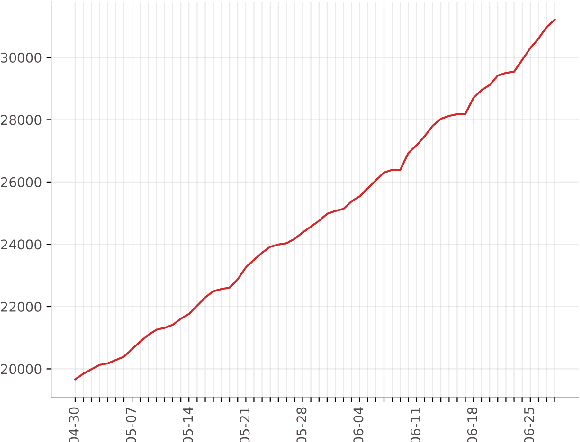
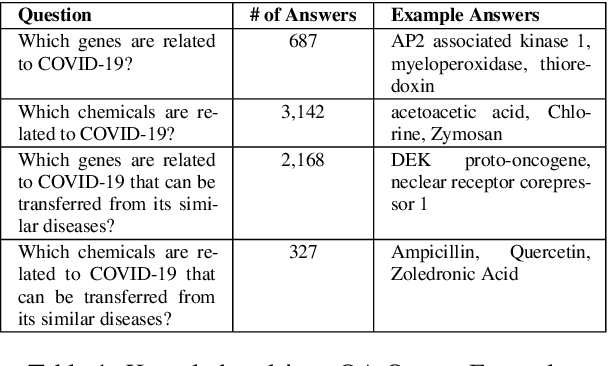
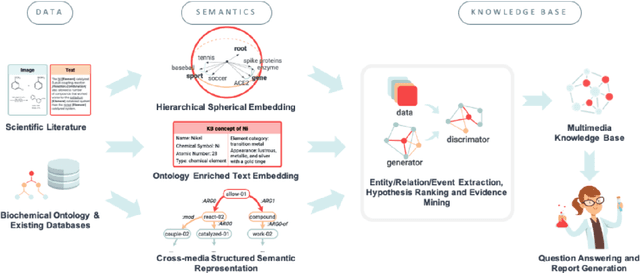
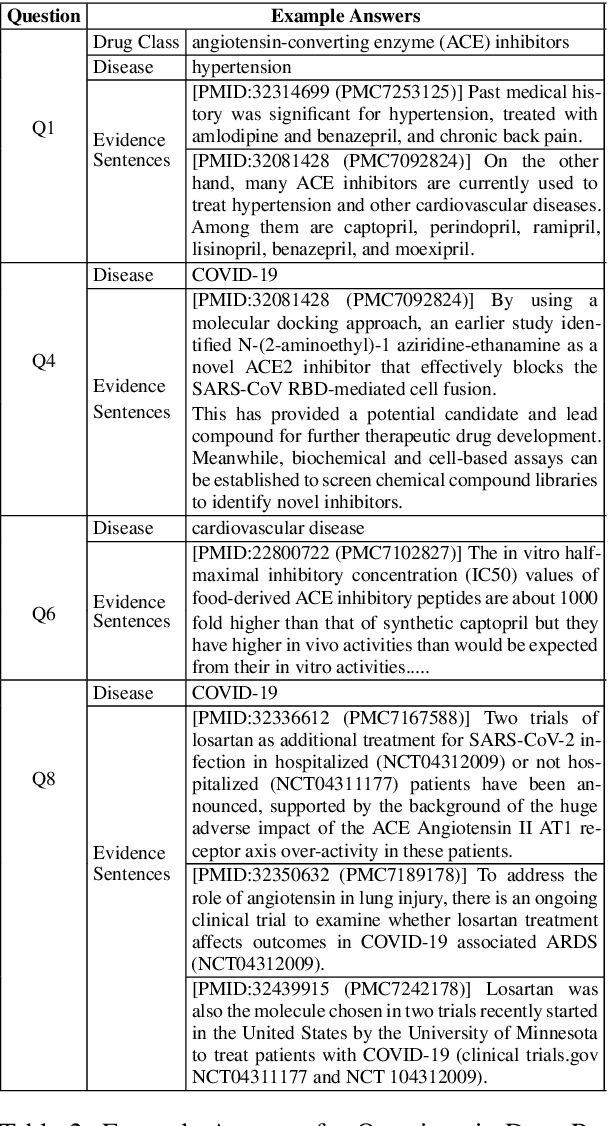
Abstract:To combat COVID-19, clinicians and scientists all need to digest the vast amount of relevant biomedical knowledge in literature to understand the disease mechanism and the related biological functions. We have developed a novel and comprehensive knowledge discovery framework, COVID-KG, which leverages novel semantic representation and external ontologies to represent text and images in the input literature data, and then performs various extraction components to extract fine-grained multimedia knowledge elements (entities, relations and events). We then exploit the constructed multimedia KGs for question answering and report generation, using drug repurposing as a case study. Our framework also provides detailed contextual sentences, subfigures and knowledge subgraphs as evidence. All of the data, KGs, resources, and shared services are publicly available.
From Submit to Submitted via Submission: On Lexical Rules in Large-Scale Lexicon Acquisition
Jul 08, 1996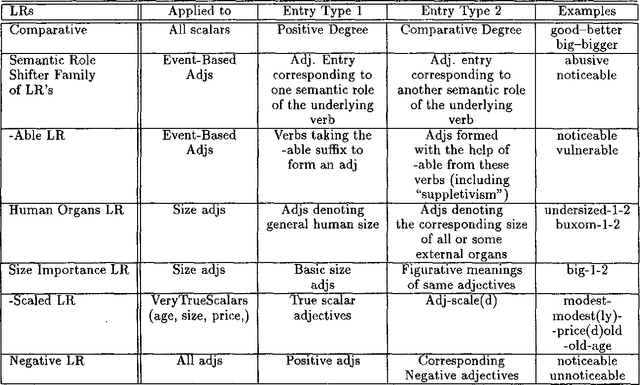
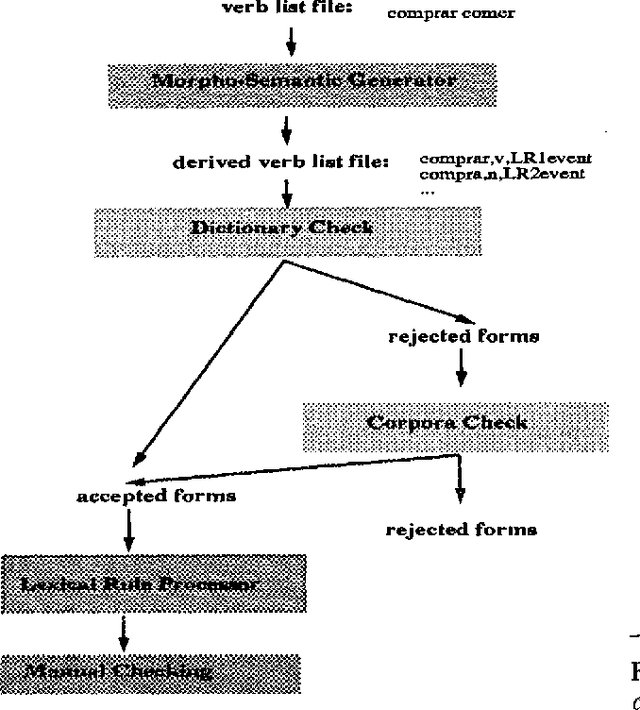
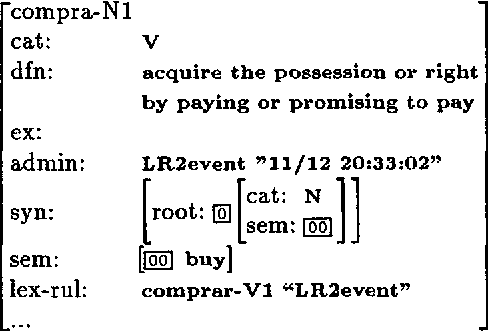
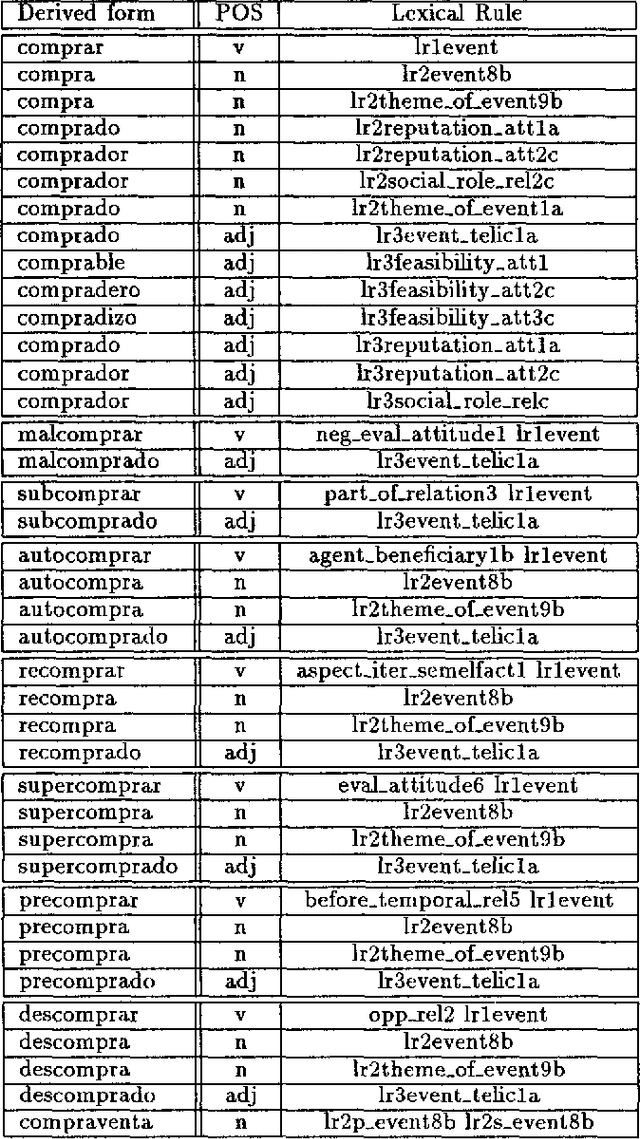
Abstract:This paper deals with the discovery, representation, and use of lexical rules (LRs) during large-scale semi-automatic computational lexicon acquisition. The analysis is based on a set of LRs implemented and tested on the basis of Spanish and English business- and finance-related corpora. We show that, though the use of LRs is justified, they do not come cost-free. Semi-automatic output checking is required, even with blocking and preemtion procedures built in. Nevertheless, large-scope LRs are justified because they facilitate the unavoidable process of large-scale semi-automatic lexical acquisition. We also argue that the place of LRs in the computational process is a complex issue.
 Add to Chrome
Add to Chrome Add to Firefox
Add to Firefox Add to Edge
Add to Edge